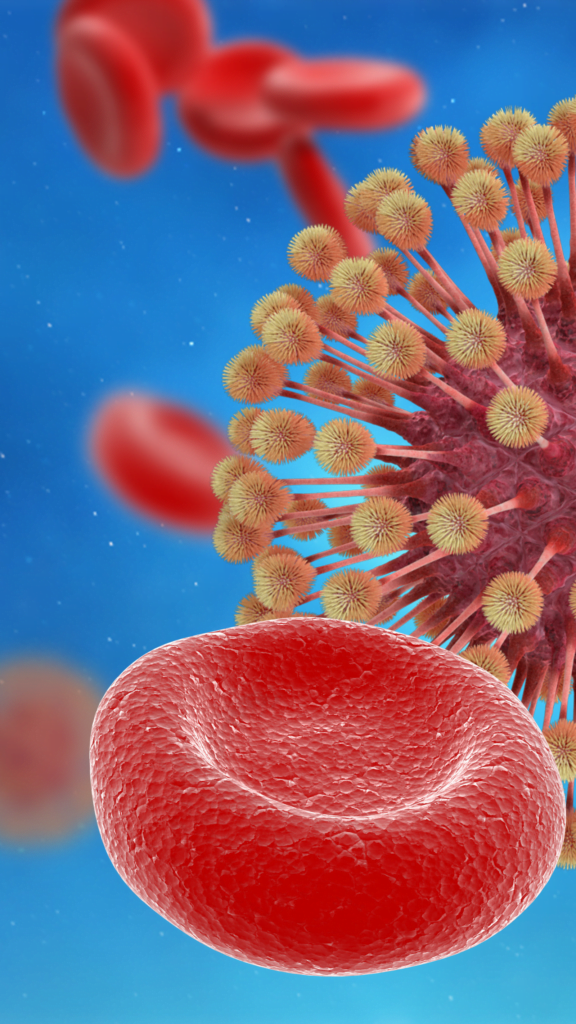Let’s talk about Herpes Simplex Virus 1 (HSV-1)! You may have heard of it before, but do you really know what it is? Well, HSV-1 is a common virus that affects millions of people worldwide. It is responsible for those pesky cold sores that appear on or around the mouth. But there’s more to HSV-1 than meets the eye. In this article, we’ll explore what exactly this virus is, how it spreads, and the various ways it can affect our lives. So, let’s get started and uncover the facts about HSV-1!


Overview
Herpes Simplex Virus 1 (HSV-1) is a common and highly contagious virus that causes cold sores or oral herpes. It is a member of the herpesvirus family and primarily affects the mouth and lips. HSV-1 is typically transmitted through direct contact with infected saliva, either by kissing, sharing utensils, or engaging in oral sex. Once infected, the virus remains in the body for life, and while it may lay dormant for extended periods, it can become reactivated, leading to recurrent outbreaks. While HSV-1 is generally not a serious health concern, it can cause discomfort and social stigma for those affected.
Transmission
HSV-1 is primarily transmitted through direct contact with an infected person’s oral secretions or sores. This commonly occurs through activities such as kissing, sharing eating utensils or drinking containers, and engaging in oral sex. It is essential to note that HSV-1 can also be spread to other regions of the body, including the genitals, through oral-genital contact. Additionally, the virus can be transmitted from a mother to her newborn during childbirth, which can have severe consequences for the infant. It is important to practice good hygiene and avoid contact with active sores to minimize the risk of transmission.
Prevalence
HSV-1 is widespread, with a significant portion of the global population estimated to be infected by the virus. In some areas, the infection rate can be as high as 90% among adults. The prevalence varies depending on geographical location, age, and socioeconomic factors. While HSV-1 infections can occur at any age, they are most commonly acquired during childhood or adolescence through non-sexual means, such as sharing utensils or being kissed by an infected family member. It is important to remember that even if someone does not experience visible symptoms, they can still transmit the virus to others.
Herpes Simplex 1 Symptoms
The initial infection with HSV-1 can cause symptoms such as fever, sore throat, swollen glands, and painful blisters or sores on or around the mouth. These symptoms typically appear within 2 to 20 days after exposure to the virus and may last for a couple of weeks. In some cases, individuals may experience a prodrome, which is a tingling or itching sensation before the appearance of the sores. Recurrent outbreaks are usually milder and shorter-lived compared to the initial infection, with symptoms like a burning or tingling sensation followed by the re-emergence of sores. It is important to note that not everyone infected with HSV-1 will experience noticeable symptoms.
Complications
While HSV-1 infections are generally not life-threatening, there are potential complications that can arise, particularly in individuals with weakened immune systems. These complications can include the spread of the infection to other parts of the body, such as the eyes, leading to a condition called herpetic keratitis, which can cause vision problems if left untreated. Additionally, HSV-1 can cause a condition known as herpetic whitlow, which results in painful blisters on the fingers or hands. In rare cases, HSV-1 can lead to a viral infection of the brain, known as herpes encephalitis, which can be serious and require immediate medical attention.

Get 51% Discount If You Order Now!
Diagnosis
Diagnosing HSV-1 usually involves a physical examination and evaluation of symptoms by a healthcare provider. In some cases, they may also perform a laboratory test, such as a viral culture or polymerase chain reaction (PCR), to confirm the presence of the virus. These tests may be particularly useful in cases where symptoms are not distinct or if a person experiences recurrent outbreaks. It is important to consult a healthcare professional if you suspect you may have an HSV-1 infection, as they can provide accurate diagnosis and appropriate guidance for managing the condition.
Treatment
There is currently no cure for HSV-1, as the virus remains in the body for life once infected. However, there are treatment options available to manage symptoms and reduce the frequency and severity of outbreaks. Antiviral medications, such as acyclovir, valacyclovir, or famciclovir, can help control symptoms and speed up the healing process. These medications can be taken orally or applied topically to the affected area. Additionally, over-the-counter creams or ointments can provide temporary relief from discomfort or pain. It is important to discuss treatment options with a healthcare professional to determine the most appropriate approach for your specific situation.
Prevention
While it is challenging to completely prevent the transmission of HSV-1, there are steps you can take to minimize the risk and protect yourself and others. Avoiding direct contact with infected individuals during outbreaks and refraining from sharing personal items, such as drinking glasses, utensils, or lip balm, can significantly reduce the chances of transmission. Practicing safe oral sex, such as using dental dams or condoms, can also help lower the risk of spreading the virus to the genitals or acquiring genital herpes. Additionally, maintaining good personal hygiene and avoiding triggers, such as stress or excessive sunlight, may help prevent recurrent outbreaks.

Impact on Mental Health
Living with HSV-1 can have a significant impact on mental health and emotional well-being. The stigma associated with cold sores and oral herpes can lead to feelings of shame, embarrassment, and isolation. Individuals may experience anxiety, depression, or lowered self-esteem due to concerns about transmitting the virus or being judged by others. It is crucial to seek support from healthcare professionals, support groups, or therapists who can provide guidance, education, and emotional support. Remember that HSV-1 is a common infection and does not define your worth or character.
Conclusion
Herpes Simplex Virus 1 (HSV-1) is a contagious virus that primarily causes cold sores or oral herpes. It spreads through direct contact with infected saliva or sores, like kissing or sharing utensils. While it’s common, HSV-1 is generally not severe but can cause discomfort and impact mental health. Understanding transmission, symptoms, complications, and treatments helps manage the condition and reduce the risk of transmission. Seeking support and education can reduce stigma and promote acceptance.



